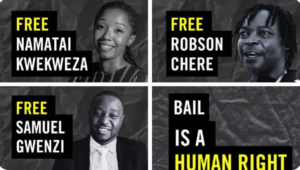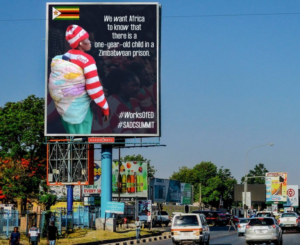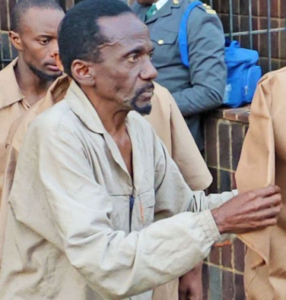ZIMBABWE’S JUSTICE SYSTEM: A TOOL OF OPPRESSION
The criminal justice system in Zimbabwe, which includes the police, the courts, and corrections, is supposed to enforce the law, protect the public, arrest suspected lawbreakers, and prevent crime. However, the purpose of the criminal justice system should not be just to arrest, prosecute, and punish criminals. It should aim to prevent crime and create a peaceful, law-abiding society. Sadly, the law enforcement community in Zimbabwe has failed to ensure this.
In Zimbabwe, the justice system is often seen as biased and ineffective. Political arrests and judgments have led to human rights abuses. The system is now used as a weapon against political opponents and those who speak out about social, economic, and political injustices. Instead of being a tool against oppression, the justice system now contributes to it, failing to maintain a just and free society where equality is a common law.
The International Commission of Jurists (ICJ) has called on the Zimbabwean government to stop using the offence of “subverting a constitutional government” to punish human rights defenders. Arnold Tsunga, ICJ’s Africa Director, said, “The Zimbabwean government needs to stop abusing the law to persecute human rights defenders. This oppressive use of law violates the rule of law and human rights as guaranteed in the Zimbabwean Constitution and international treaties.”
Last year, Zimbabwean police arrested and detained Hopewell Chin’ono, an award-winning journalist, and Jacob Ngarivhume, leader of the political group Transform Zimbabwe. They were accused of inciting public violence after exposing high-level corruption and calling for anti-corruption protests. While they were held in custody, Petronella Kagonye, a former Social Welfare Minister facing fraud charges, was granted bail. This shows how the justice system in Zimbabwe is used to suppress transparency and accountability.
The prison system in Zimbabwe also reflects the harsh state of the justice system. Prisons like Chikurubi Maximum Prison are in poor condition, with issues like inadequate nutrition, poverty, lack of medical care, and poor sanitation. Jacob Sikhala, a member of parliament from Chitungwiza, was detained for inciting political violence. After his release, he described the poor sanitation in the prison, where more than 50 people had to use one toilet. Instead of rehabilitating offenders, the prison system in Zimbabwe punishes them, failing to prepare them to return to society as better citizens.
Under the ZANU-PF government, legal accountability and the rule of law have eroded. Victims of human rights abuses, mainly MDC supporters, are denied justice, while perpetrators enjoy immunity due to their association with ZANU-PF. This culture of injustice dates back to the 1980s Gukurahundi massacre and continues to dominate today. Key justice institutions have become tools of repression, and their reform is crucial for restoring normalcy and respect for human rights in Zimbabwe.
The eviction of white farmers in the early 2000s further highlights the injustice in Zimbabwe. White Zimbabweans were removed from their land under the guise of nationalizing resources, benefiting only the elite ZANU-PF class. The justice system ignored this politically driven act. The appointment of the Vice President as Minister, despite lacking medical expertise, further shows how ZANU-PF manipulates the law. The judicial arm’s silence on such issues indicates its failure to uphold the constitution, making it a tool for the elite to hide their wrongdoings.
In conclusion, Zimbabwe’s criminal justice system has failed to achieve its true purpose of preventing crime and creating a just society. Instead, it has become a tool of oppression, political manipulation, and human rights abuses. Reforming the justice system is essential for ensuring the rule of law, accountability, and respect for human rights in Zimbabwe.



